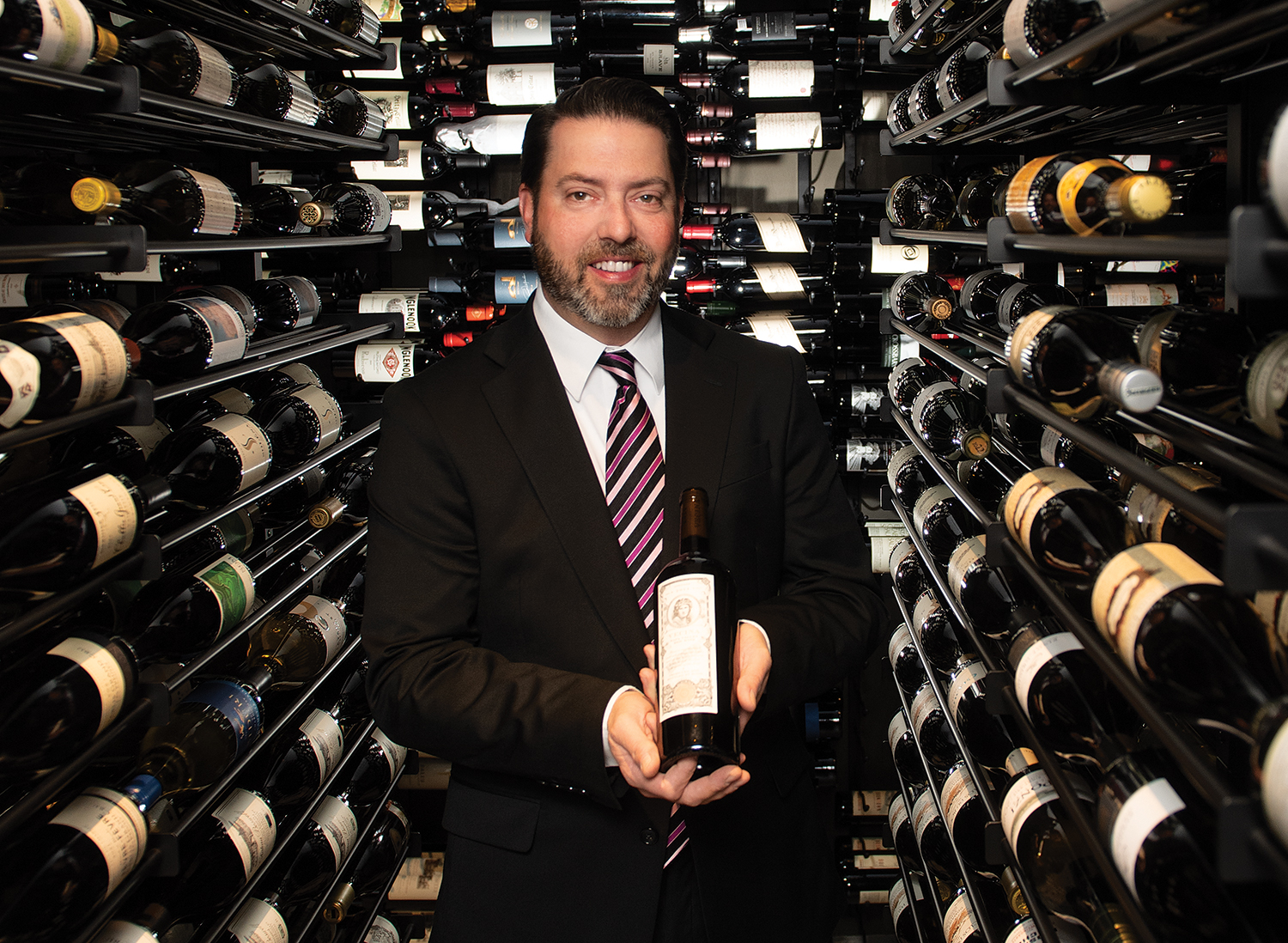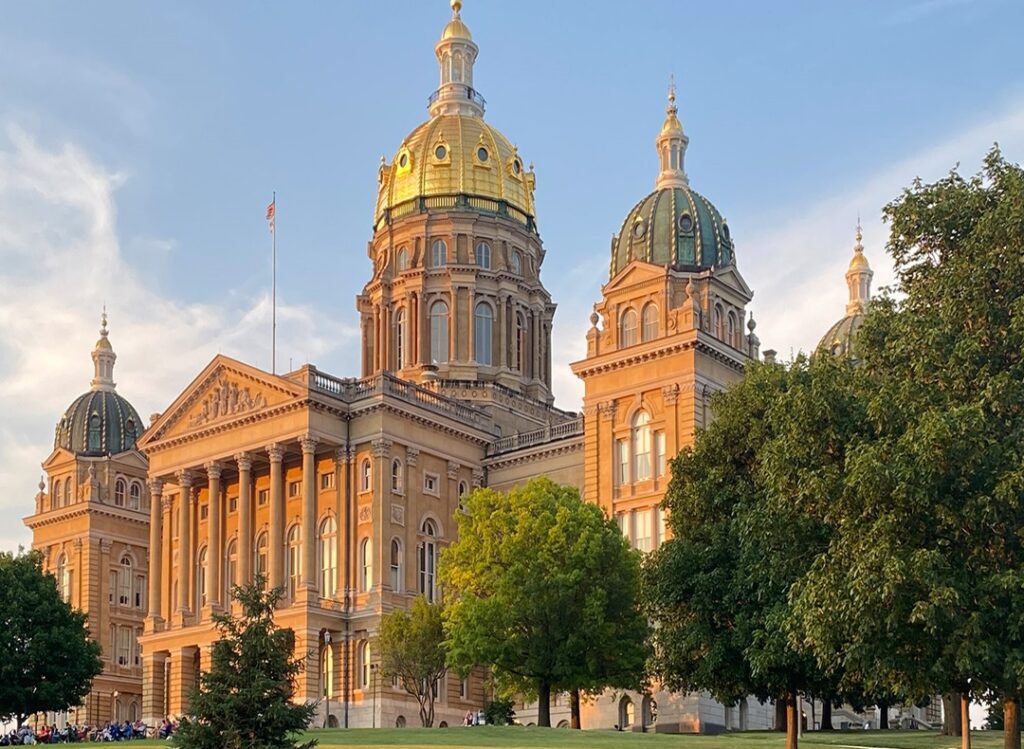The New Connoisseur
New law pops the cork on rare wine acquisition in Iowa

Michael Crumb Dec 6, 2024 | 6:00 am
6 min read time
1,529 wordsBusiness Record Insider, Government Policy and LawRestaurants and bars across Iowa are able to purchase wines and provide customers with products that have never before been available for commercial sale due to a new law passed by the Iowa Legislature this year.
State lawmakers signed off this spring on House File 2669, which allows restaurants to buy wine through private sale or at auction, or from out-of-state brokers, and resell them to customers. That was not previously allowed under Iowa’s alcohol distribution laws.
The measure was unanimously approved by the House in March and passed the Senate with only one “no” vote in April. It was signed into law by Gov. Kim Reynolds on April 19.
The ownership group behind Des Moines restaurant Oak Park worked with Brad Epperly, a partner in the Epperly and Miller law firm, and CWL Group to move the bill through the session. CWL Group is a wholly owned subsidiary of the law firm.
Damon Murphy, the restaurant’s general manager, said he hopes the new law will create awareness of wines that consumers have been otherwise unable to get in Iowa.
“So much wine goes to New York, Chicago and the big markets,” he said. “It just hasn’t come here because no one is selling it, and people aren’t aware of it because they’ve never seen it, so [the effort] was more to create awareness of these great wines of the world that never find their way to the state. That was really the gist of our backing of the law and to get these great wines in front of guests and customers so that they can enjoy them.”
Oak Park recently received its first shipment of wines under the new law, and Murphy said he’s already hearing from guests about his expanded wine list.
“I had a guest come in who actually has some of these wines in his own private cellar who was surprised to see the additions to our list,” Murphy said.
He said that in his 30 years in the restaurant business, he has received frequent requests to get bottles of wine from other areas of the country and the world.
“It happens all the time,” said Murphy, who previously was general manager at 801 Chophouse, where he worked for 16 years. “Especially people who bring in their own bottles for a corking fee, it’s mostly bottles that they can’t get and that aren’t available in the state.”
Oak Park’s wine cellar has about 800 labels and can hold up to 7,000 bottles of wine.
Murphy said that while the new law may initially fill a niche for higher-end, fine-dining establishments like Oak Park, he believes it has the potential to reach a broader audience.
“Some of the wines we are ordering are the higher-end things that do fit well with our cuisine, but it doesn’t mean it has to be,” he said. “There are some great wines out there that are in the top 100 list that are $15 to $20 a bottle. Maybe from a smaller producer but they don’t find their way to Iowa. They’re gobbled up by the larger markets. But they don’t have to be.”
Finding the wine
Oak Park is working with Iowa City-based distributor Best Case Wines and owner Robert Morey to obtain wines under the new law.
Morey is also a licensed importer and imports wines from Portugal, France and Italy. He said that under the new law, one of the more expensive and difficult wines to obtain is Screaming Eagle Cabernet Sauvignon from Napa Valley. According to online auctions, it is selling for around $1,700 a bottle. Retailers on the coasts are selling it for $2,400 and up, Morey said.
He said right now wines being purchased because of the new law is a small part of his business to meet a niche demand, but that it’s possible the market could grow.
“Ultimately what it depends upon is the initiative taken by restaurateurs themselves,” he said. “I don’t see it as being an option that’s going to be appealing to many retail shops. I don’t see them being that interested because when you have restaurant wine, the markup is sufficient that it allows restaurateurs to recoup some of the cost they would incur in getting ultra high premium bottles like this.”
Jessica Dunker, president and CEO of the Iowa Restaurant Association, said the new law is a small step toward a much-needed rewrite of Iowa’s alcohol policies.
“We are overdue for a re-read from beginning to end to really create something that is more in line with the realities of not just the hospitality business but the distribution business in general,” she said.
Dunker said while many restaurants may not take advantage of the new law, “for those that do, it will give them an opportunity to differentiate themselves in a way they couldn’t before.
“It’s a step in the right direction, but it’s addressing one small piece of code when really at the end of the day we need to look at the entire chapter and system and modernize our alcohol distribution laws in the state,” she said.
Epperly said the ability to buy rare wines at auction or from out-of-state brokers is the biggest change resulting from the Iowa code change.
While individuals, restaurants or bars could previously buy wine at auction, they could not then resell it to customers, Epperly said.
Under the new law, those wines can now be purchased at auction or through brokers and sold to customers at a restaurant and bar, he said.
Epperly said he worked with various industry groups leading up to the session to make the legislative process more smoothly.
Epperly said he also investigated what other states were doing. Among the states whose alcohol laws he checked were California, New York, Delaware and Texas.
“It’s not necessarily an apples-to-apples comparison because every state’s alcohol laws are different,” he said. “This is going on around the country. It’s very limited but it can provide big opportunities for those who want to take advantage of it.”
Epperly drafted the language for the bill and said the only change that was needed when the text came back from the bill drafter was closing a gap in a form of procurement that would have skipped the taxing process with the Iowa Department of Revenue.
He also said the law will likely have a small impact on the state’s hospitality industry, and for the most part appeal to higher-end establishments. But it does offer a form of economic development by creating a destination for wine connoisseurs who want to visit a community that has a restaurant or bar that offers a rare wine.
Epperly compared it to Toppling Goliath Brewing Co., in Decorah, which hosted a private dinner on Dec. 5 for the release of its Kentucky Brunch Brand Stout. The event, which sold out, included a four-course dinner, one 4-ounce pour of the 2024 KBBS, a commemorative glass to take home and one 12-ounce bottle of the beer. According to the brewery’s website, tickets for the event started at $500 for a table for two.
“People will come from literally around the world for this release to Decorah, Iowa, and that’s huge for the community,” Epperly said. “It’s an attraction. And I think Oak Park is trying to build that type of attraction here in Des Moines with the level of cuisine and the wine.”
A market for private collectors
The new law will also increase opportunities for people with their own wine collections — or collections being sold at an estate sale — who may be looking to sell, Epperly said.
“I would think that this would create the potential for them to obtain higher value for their wines,” he said. “Where previously you had been limited to individual buying for individual consumption, now you have the opportunities for retailers to be interested and who might be willing to pay a higher price. Certainly it would be easier to move it.”
Dunker said while the new law is an “interesting and positive thing,” more change in Iowa’s alcohol distribution laws are needed.
For comparison purposes, Dunker said Iowa law requires restaurants to buy their beer from a licensed wholesaler, although a small fix two years ago allows a limited number of cases of beer to be purchased from a retailer as a stopgap measure if an establishment runs out. Spirits cannot be purchased from a wholesaler. It has to be purchased from a store, she said.
Wine can be purchased through a wholesale distributor or from retail, depending on the quantity being purchased.
“So when I say [our alcohol laws] are kludgy, they’re kludgy,” Dunker said. “You have to navigate those.”
While it may be too soon to know the true effect of the law, Dunker called it an “encouraging move for the industry.”
“There are other doors we would like to crack open, and we’d like to widen this door even more, particularly, with products not listed in the state and maybe we want to bring in something unique from other places,” she said. “We’re at least peeking through the door now and it’s encouraging.”

Michael Crumb
Michael Crumb is a senior staff writer at Business Record. He covers real estate and development and transportation.











